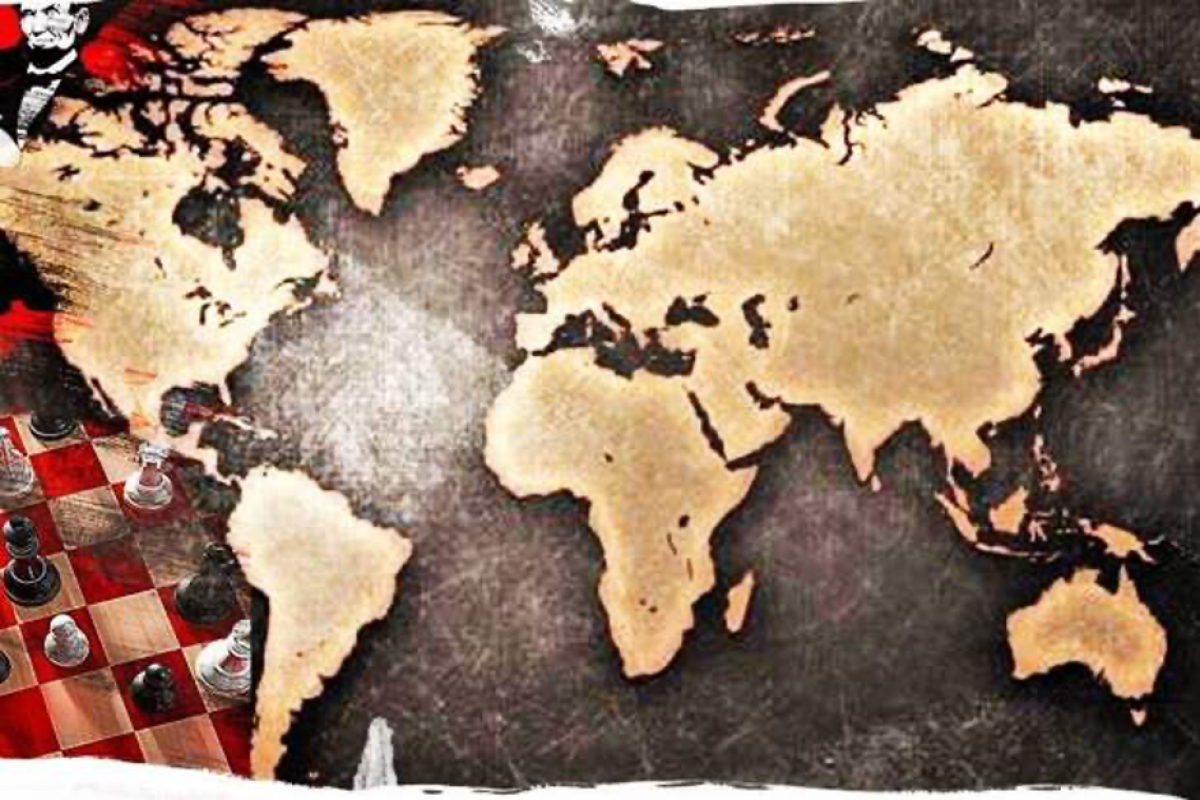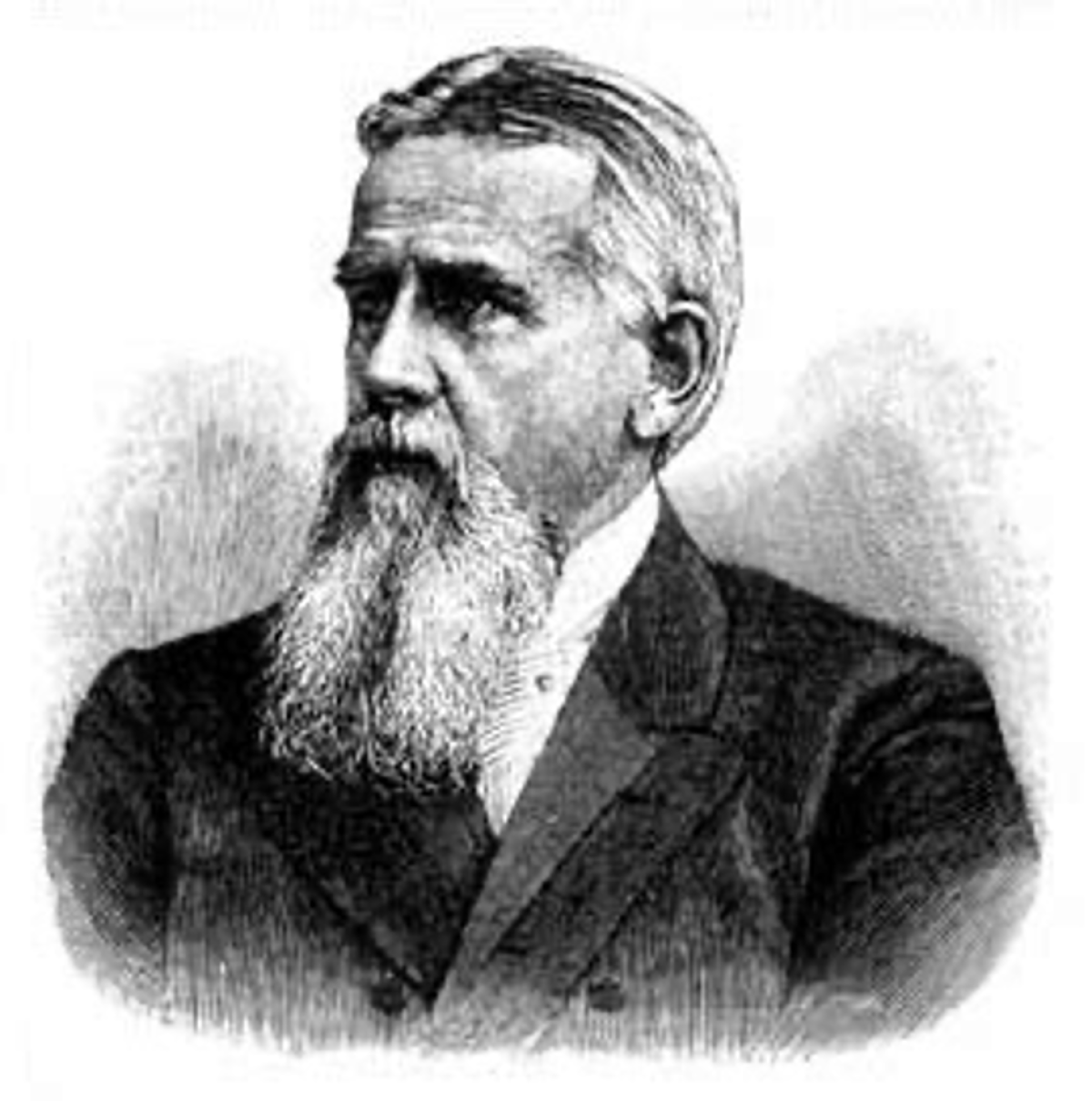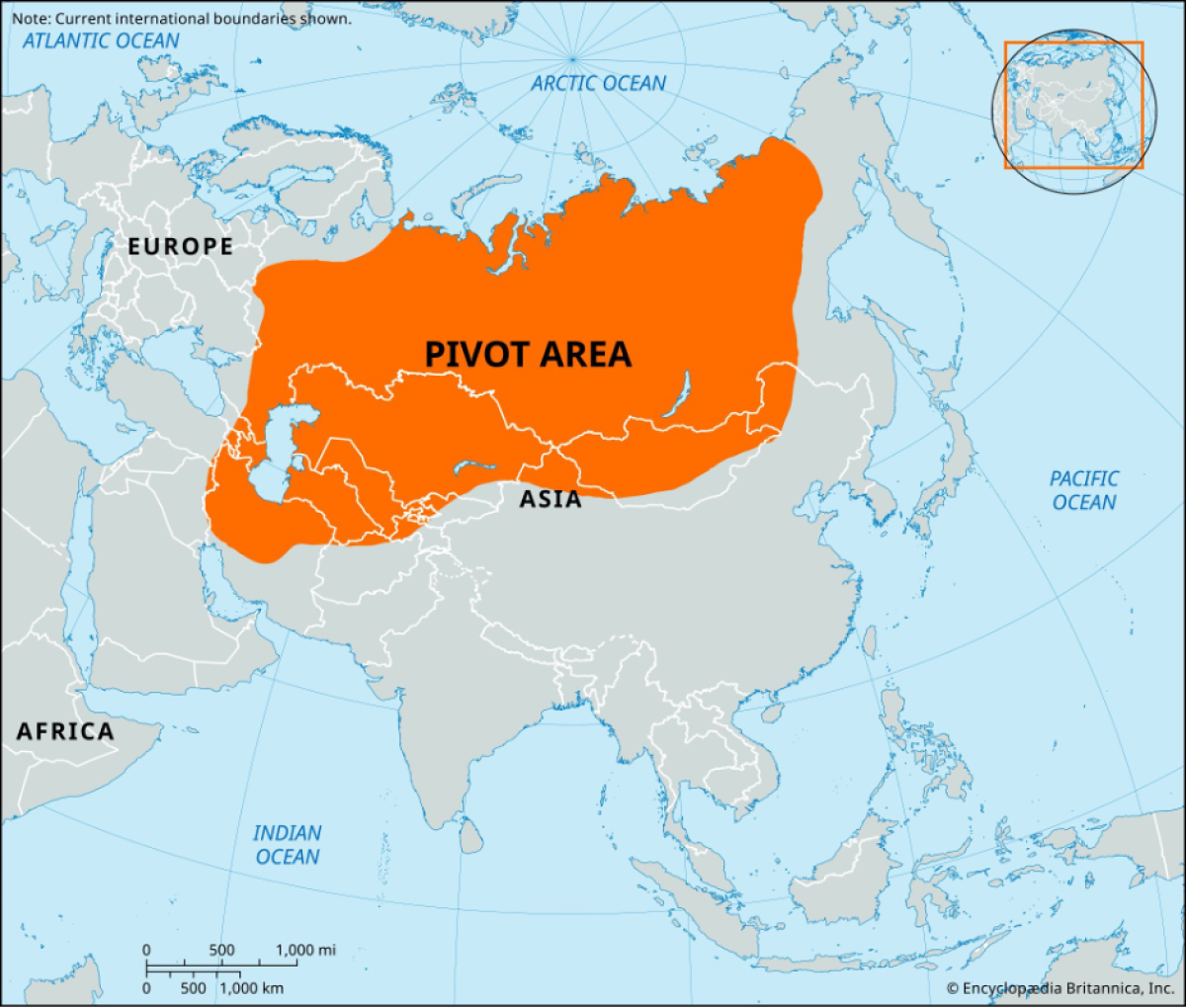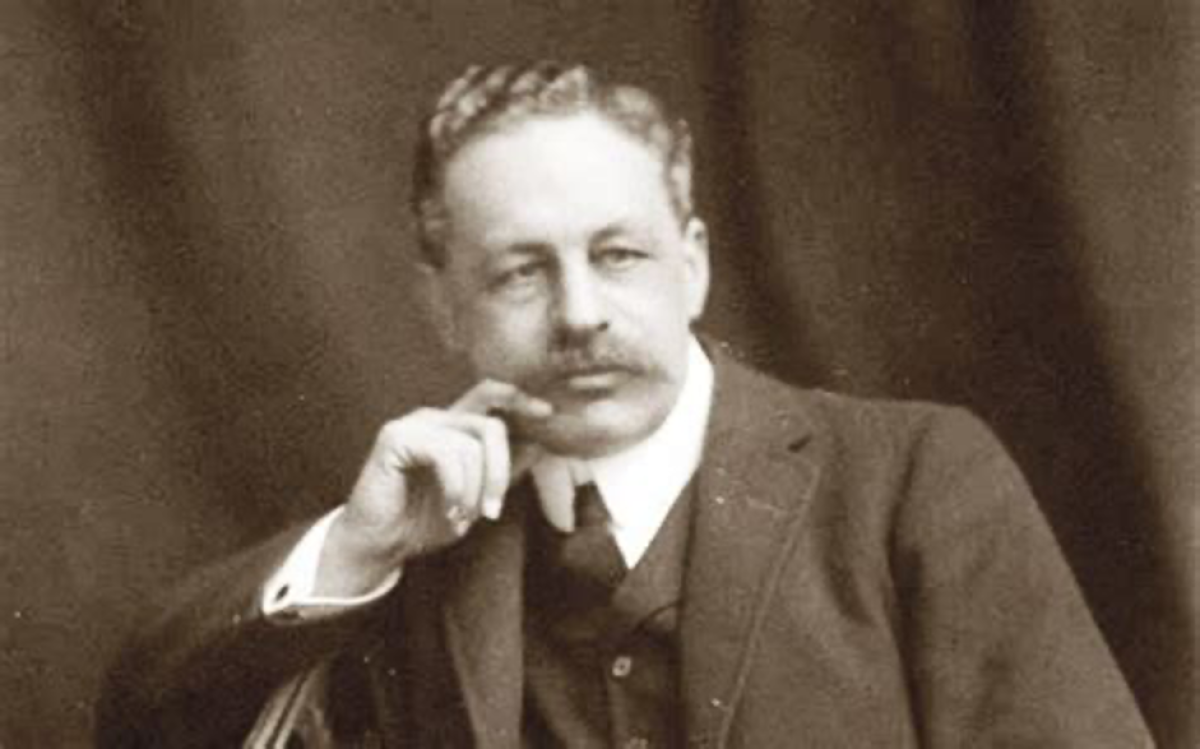
Geopolitics and morality
In many political circles in the West, the term “geopolitics” has a bad reputation. The word ‘geopolitics’ conjures up images of imperial maneuvers, cynical realism, and brute force. In political discourse, especially in Europe and the United States, “geopolitics” is what the other side does. It is a label reserved for Russia's ambitions, China's New Silk Road, or Iran's regional influence. The West, according to the conventional narrative, does not play such games. The West acts not out of self-interest but out of principle, not out of a lust for power but out of a sense of duty to defend democracy, human rights, and the rule of law. The West liberates—it does not conquer. The West defends—it does not provoke. The West stands on the side of morality, while its opponents are driven by lust for power, territorial ambition, and historical vindictiveness. The West is idealistic and value-oriented, while its opponents are obsessed with geopolitical calculation.
This dichotomy is undoubtedly very pleasing to the self-esteem of many citizens in Europe and America, who are also deeply convinced that the West is now finally firmly on the side of good. However, such a worldview is not only misleading, it is downright dangerous. It promotes moral complacency in Western societies and dangerous hubris in Western politics. It blinds societies to the structural forces and strategic interests that drive their own governments. Above all, it carries the risk of escalating conflicts such as the war in Ukraine, which could easily have been avoided with less arrogance and more honesty.

Geopolitics emerged as a theoretical discipline in the late 19th and early 20th centuries as an attempt to analyze and explain the power relations between states in light of geographical conditions. Early influential theorists such as Friedrich Ratzel in Germany and Halford Mackinder in Great Britain laid the foundations for a way of thinking that viewed political influence, resource distribution, and territorial control as closely linked to space and location. Geopolitics saw itself as a science of strategic spatial planning in which history, geography, and state power were intertwined. In the 1930s and 1940s, however, this way of thinking was exploited by Nazi ideology. Karl Haushofer, a key proponent of so-called “German geopolitics,” provided a pseudo-scientific justification for expansion, war, and subjugation with his concepts of “Greater Germany” and “living space.” After World War II, the term “geopolitics” was therefore viewed with suspicion for a long time and largely avoided in much of Europe.

Despite this historical burden, geopolitical logic has never completely disappeared from international politics. Even in the West, which outwardly espouses human rights, liberal values, and multilateral principles, geopolitical thinking is in fact very much alive. Western countries pursue strategic interests, secure sea lanes, energy sources, and spheres of influence, build military bases along key trade routes, and take targeted action to contain emerging powers such as China and Russia. Even humanitarian interventions, diplomatic alliances, and sanctions often cannot be understood without a geopolitical context. While the rhetoric has changed, geopolitical calculation remains a silent constant in the foreign policy of Western democracies.
The moral alibi of the West
The Western moral narrative reached its peak with the war in Ukraine. From the first days of the Russian invasion in February 2022, the media and political elites in Europe and North America portrayed the conflict in almost biblical terms: Russia as the eternal aggressor, Ukraine as the innocent victim, and the West as the righteous protector of the international order. This narrative enabled an extraordinary mobilization of public opinion, military aid, and economic sanctions. But it also stifled any debate. Any suggestion that NATO expansion might have contributed to the crisis, any proposal for negotiations or concessions to Moscow, was branded appeasement, treason, or even high treason.
The Russian demands before the war were not imperial in nature. Moscow did not demand the dismantling of Ukraine, nor did it insist on installing a puppet regime in Kiev. The central demand was that Ukraine remain neutral — specifically, that it not join NATO. Whether one agrees with this demand or not, it was neither irrational nor unprecedented. It reflected the long-standing strategic concern of a major power that felt threatened by encirclement. The US would not tolerate Chinese military bases in Mexico; Russia would not accept NATO bases in Ukraine. It was not a question of morality — it was a question of classic security logic. But the West did not want to hear about it.
What is remarkable is not that Russia made this demand, but that the West rejected it so proudly, even if it meant sacrificing Ukraine. In the words of Wendy Sherman, who was US Deputy Secretary of State in 2021:
The US would not "allow anyone to slam NATO's open door shut. We have made it clear: we do not make decisions for other countries. We will not agree that one country has a veto over another country when it comes to membership in the NATO alliance."
Wendy Sherman
Or, in the words of then-NATO Secretary General Jens Stoltenberg in his report to a European Union committee in September 2023, when he spoke of Russia's offer to NATO before the war:
“The background was that in the fall of 2021, President Putin declared and actually sent a draft treaty that NATO was supposed to sign to promise that there would be no further NATO expansion. That was what he sent us. And it was a precondition for not invading Ukraine. Of course, we did not sign it.”
Jens Stoltenberg
The principle of Ukrainian sovereignty — including the hypothetical right to join NATO — was treated as sacred, even if adhering to this principle meant war. In this view, Ukraine's abstract moral right outweighed the concrete risks of military conflict, economic devastation, and tens of thousands of deaths.
This is not morality. It is moral absolutism — a rigid, ideological stance that ignores consequences in favor of dogma. It is the exact opposite of prudence, which is a cardinal virtue in every serious ethical and political tradition.
Realpolitik under false pretences
To describe this attitude as “moral” is to misunderstand the role of morality in politics. In reality, morality in international relations is relative, conditional and strategic. It is invoked when it is useful and ignored when it is inconvenient. The US and Europe defend human rights in Iran, but ignore them in Saudi Arabia. They criticize Chinese authoritarianism, but want to sell more goods in China. They condemn war crimes committed by Russia, but remain silent about civilian casualties of NATO operations in Libya or US drone strikes in Pakistan.
This selectivity is no accident. It reflects interests, not values. The West does not invoke morality to guide itself, but to justify its actions — to legitimize power under the guise of principles. In short, it is realpolitik under false pretenses.
The tradition of realpolitik—made famous by Machiavelli and Bismarck—assumed that states act in their own interests in terms of security and power. Morality plays a role only insofar as it serves these goals. This tradition was harsh but honest. Today's Western version is more dangerous because it is dishonest. It refuses to acknowledge that it too pursues interests — that the West is also a geopolitical actor.
Consider the US invasion of Iraq in 2003. It was sold as a moral crusade against tyranny and weapons of mass destruction. In reality, it was a strategic maneuver to reshape the Middle East. The war led to hundreds of thousands of deaths, destabilized the region, and led to the rise of ISIS. Yet hardly any Western politicians had to take responsibility for it. No one apologized for it. The US and the other countries in the coalition of the willing did not pay reparations to Iraq. Why? Because the American and European public were all too willing to accept the moral alibi. The Iraq War may have been a tragic mistake that directly led to the deaths of hundreds of thousands of people, but we are still the good guys, or so the thinking seems to have been. Who cares about a few backward Muslims?
Or take the case of Libya in 2011. NATO intervened to prevent alleged genocide in Benghazi. The real goal was regime change. The result was state collapse, civil war, and a migration crisis that continues to burden Europe to this day. Here, too, the intervention was justified on human rights grounds — but its consequences were anything but humane.
The cult of virtue and the eradication of complexity
One of the most disturbing features of Western moral discourse is its leveling of complexity. In the name of supposed moral clarity, every nuance is erased. Conflicts become moral plays: good versus evil, freedom versus tyranny. This Manichean portrayal is intellectually lazy and politically completely irresponsible.
The war in Ukraine is a prime example. From the outset, Western societies have been urged to view the conflict as a clear-cut case of aggression versus resistance. There was no room for discussion about the history of NATO expansion, the role of the 2014 Maidan uprising, or the fate of the Russian-speaking population in Donbass. Anyone who raised such issues was quickly labeled a “Putin sympathizer” and their arguments were dismissed as irrelevant at best, insane at worst.
But the history of the war in Ukraine did not begin in 2022. The seeds of today's war were sown in the 1990s, when the US and its allies decided to expand NATO eastward — despite clear promises to Gorbachev. Today, the very idea of a promise not to expand NATO is dismissed as a mere invention of Russian propaganda, even though eyewitness accounts suggest otherwise. Even figures such as George Kennan and Henry Kissinger — not pacifists — warned that NATO on Russia's borders would provoke a reaction. Their warnings were deliberately ignored.
Western elites assumed that Russia was too weak or too divided to resist. They assumed that the post-Cold War world was unipolar, that the US and its allies could shape the world order in their own image. This hubris was not only strategic—it was moral. It assumed that the Western way of life was so obviously superior, so manifestly just, that no rational actor could reject it.
But the world is not a seminar room. It is a terrain of competing interests, diverging cultures, and historical wounds. When pressured, countries like Russia are more than willing to fight for their security interests. Imposing a single moral vision of the world is not idealism—it is imperialism.
Heartlands, lifelines, and energy corridors

The West's geopolitical involvement in Ukraine cannot be understood without considering geography and resources. Ukraine is not just a country fighting for survival. It is a key point in Eurasia — a land bridge between Europe and Russia, an important energy corridor, and a buffer zone whose allegiance determines the balance of power on the continent. Why did the EU and NATO so desperately want Ukraine? Was this really the will of the Ukrainian people, as is commonly claimed? Could the EU and NATO not simply have left Ukraine alone?

Halford Mackinder, the British geographer, once argued:
“Who rules Eastern Europe commands the Heartland; who commands the Heartland controls the World Island; who controls the World Island rules the world.”
Halford Mackinder
This theory, long dismissed as outdated, has returned with a vengeance. Ukraine is the gateway to the heartland, Russia. And the struggle for it is not just about values — it is about control. The Polish grandee of US foreign policy, Zbigniew Brzezinski, also spoke of Ukraine's geopolitical significance:
“Without Ukraine, Russia ceases to be an empire, but if Ukraine is bribed and then subjugated, Russia automatically becomes an empire.”
Zbigniew Brzezinski
From Russia's point of view, the war in Ukraine is therefore of an existential nature.
On the other hand, Europe's dependence on Russian gas was a weakness that Washington had long wanted to reduce. The Nord Stream pipelines were not just commercial projects — they were strategic arteries between Germany and Russia. Their sabotage — still shrouded in mystery and silence — eliminated the possibility of a rapprochement. It forced Europe to realign its energy policy—toward American LNG, at significantly higher prices.
This was no accident. It was part of a larger strategy: to bind Europe more closely to the Atlantic alliance and prevent any independent diplomacy toward Moscow. Here, too, there was no talk of geopolitics. It was all about “energy security.” But the underlying calculation was classic power politics.
The domestic costs of moral crusades
While Western politicians cloak their foreign missions in virtue, the domestic consequences tell a different story.
The sanctions against Russia—unprecedented in their scope—were intended to paralyze the Kremlin and bring the war to a swift end. Instead, they have given rise to a new global economy that is increasingly independent of the West, strengthened Russia's self-sufficiency, and deepened the global South's distrust of the dollar system.
In Europe, the sanctions have led to deindustrialization, inflation, and rising energy prices. Right-wing and protest parties are gaining ground, fueled by discontent over idealism that has turned into economic pain. Nevertheless, the political class refuses to change course. The war against Russia now seems to have become its mission. Surprisingly, the population also remains relatively passive. The myth of the good and inevitable war against Russia seems to have led the population into a state of apocalyptic fatalism. But the future is not yet written; history is not destiny. People could theoretically make a difference if only they could understand that they have this opportunity. But today they seem too busy hating Putin and Russia to understand this. From the perspective of the European elite, this is an almost perfect scenario.
The astonishing reappointment of Ursula von der Leyen as EU Commission President a year ago — despite her warmongering stance and democratic shortcomings — signaled that Europe intends to stay the course. War is no longer a policy — it is part of the European Union's identity. The EU as a peace project is a thing of the past.
For honest geopolitics
None of this means that morality has no place in international politics. But morality must be consistent, reflective, and guided by wisdom. It must not be a selective banner or a hypocritical weapon. The only way to rehabilitate morality in politics would be to decouple it from propaganda. But is that even possible?
This requires a reckoning. The West must acknowledge that it too is a geopolitical actor. It must recognize that its interventions, alliances, and doctrines are shaped not only by universal values but also by strategic interests. Only then can it begin to engage with the world as it is — not as it imagines it to be.
The history of US foreign policy has been riddled with covert operations, regime change, and manipulation — always in the name of freedom. Ignoring this is fatal. A society based on illusions — about its past, its role in the world, and its moral purity — cannot survive forever. We may be blind to our double standards, but others do not have to be, and they have no desire to be deceived by us in the West. Europe stood as guarantor of the Minsk agreements, but in the end, these proved to be nothing more than an attempt to give Ukraine time to rearm. We may pay little attention to these small facts, but others learn from them that the West cannot be relied upon. It is not automatic that they are wrong, that only they are paranoid and crazy.
The task is not to abandon values, but to face reality. To ask whether we are not only right, but also effective. Whether our cause is not only just, but also our means are appropriate. And above all, to understand that in a world of sovereign states, power counts, and other actors may perceive the power of the West as a threat. Pretending that this is not the case only makes the world more dangerous.
As long as this reckoning does not take place, the West will continue to wage moral crusades. It will accuse others of what it does itself. And it will hold its illusions for truth — until the price becomes too high.
«Geopolitics and morality»